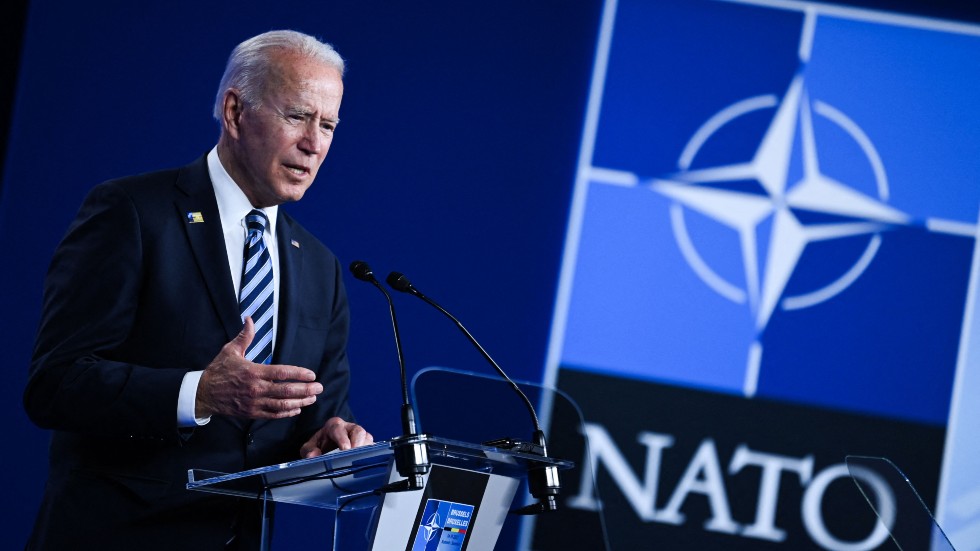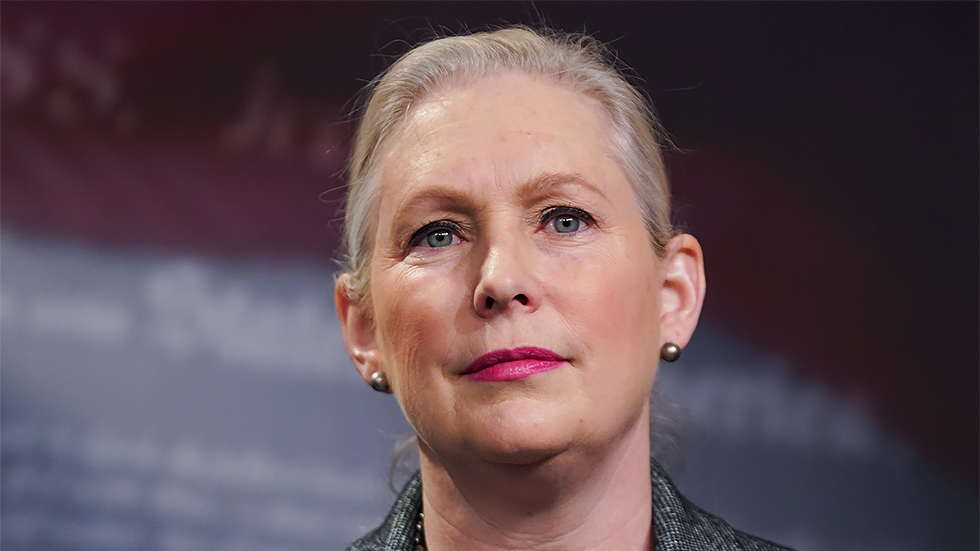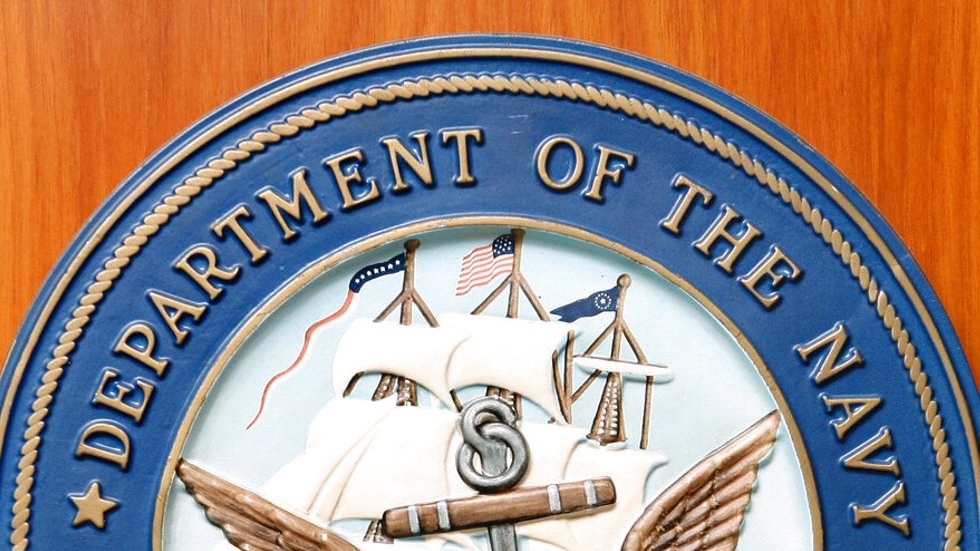Overnight Defense & National Security — Biden: US troops to Ukraine ‘not on the table’

It’s Wednesday, welcome to Overnight Defense & National Security, your nightly guide to the latest developments at the Pentagon, on Capitol Hill and beyond. Subscribe here: digital-stage.thehill.com/newsletter-signup.
President Biden said the United States is not considering sending troops to Ukraine amid rising fears about the possibility of a Russian military invasion, but there are other things on the table to deter such a move.
We’ll share what the Biden administration has discussed to deter Moscow, plus a senator’s push to overhaul the military justice system and the tragic accident that left the head of a special operations team dead.
For The Hill, I’m Ellen Mitchell. Write to me with tips: emitchell@digital-stage.thehill.com.
Let’s get to it.
Waiting to see what NATO does

Biden said Wednesday sending U.S. troops to Ukraine amid fears of a possible Russian invasion was “not on the table.”
“We have a moral obligation and a legal obligation to our NATO allies if they were to attack under Article 5, it’s a sacred obligation. That obligation does not extend to … Ukraine,” Biden told reporters at the White House before departing for a trip to Kansas City, Mo.
Earlier: The president’s comments came a day after his tense two-hour virtual meeting with Russian President Vladimir Putin, during which White House officials said the American president warned his Russian counterpart of harsh economic sanctions should Russia invade Ukraine.
Getting the message across: Biden on Wednesday described the meeting as “straightforward” and said there were no “minced words” with Putin.
“I made it very clear, if in fact he invades Ukraine there will be severe consequences,” Biden said, adding that the Russian president would incur economic penalties “like none he has ever seen.”
Asked if Putin got the message, Biden replied, “I am absolutely confident that he got the message.”
More conversations ahead: Biden has urged Putin to de-escalate through diplomatic conversations with the United States and other European countries. He told reporters he hoped the U.S. would announce high-level conversations between Russia and other NATO allies by the end of the week “to discuss the future of Russia’s concern relative to NATO writ large and whether or not we could work out any accommodations as it relates to bringing down temperature along the eastern front,” without elaborating further.
“The positive news is that thus far our teams have been in constant contact,” Biden said.
The threat: Russia has amassed tens of thousands of troops on the border with Ukraine, raising concerns about the prospect of Moscow launching a military incursion similar to what it did in 2014 when it seized Ukraine’s Crimean Peninsula.
Russia has tried to paint Ukraine and NATO as the aggressors and demanded a legally binding commitment that NATO not expand eastward to include Ukraine, which is not currently a member of the alliance. U.S. and European officials have refused to make such commitments.
What’s being considered: White House national security adviser Jake Sullivan told reporters Tuesday that a Russian invasion of Ukraine could result in the U.S. sending additional forces to NATO’s eastern flank.
The Pentagon later on Wednesday said Defense Secretary Lloyd Austin has not had consultations with his NATO counterparts about such a reinforcement beyond talks already in the works.
Read more on this from The Hill:
- Ukraine says Biden-Putin call enabled ‘deterrence and de-escalation’
- Five things to watch for at Biden’s ‘Summit for Democracies’
- Biden tries to tamp down tensions with Putin call
Gillibrand slams military justice cuts

Sen. Kirsten Gillibrand (D-N.Y.) on Wednesday blasted House and Senate Armed Services committee leadership and the Pentagon for kneecapping her decade-long effort to overhaul how the military handles sexual assault cases.
Taking cuts: Gillibrand’s legislation, a major overhaul of how the military prosecutes nearly all serious crimes, was watered down to a narrower change in prosecution of sexual assault and related crimes before being included into the annual defense policy bill passed by the House Tuesday night.
The new military justice reform language, while still significant, was a compromise negotiated behind closed doors by the chairmen and ranking members of the two committees to move advance the National Defense Authorization Act (NDAA) through Congress.
Pushing for more: “This bill does not reform the military justice system in a way that will truly help survivors get justice,” Gillibrand told reporters alongside Sens. Joni Ernst (R-Iowa), Chuck Grassley (R-Iowa) and Richard Blumenthal (D-Conn.).
“The majority of our colleagues have recognized that our bill has the support of a bipartisan, filibuster-proof majority in the Senate and a majority in the House. But the will of those members was ignored in the NDAA, where committee leaders stripped out reforms from the bill behind closed doors, despite assurances that they would follow regular order.”
What’s the difference?: The biggest difference between Gillibrand’s bill and the House-passed bill lies with how the military prosecutes serious crimes, including sexual assault. Gillibrand’s version would entirely remove military commanders from the chain of command in such cases, replacing them with independent military prosecutors.
The House’s version, meanwhile, would strip commanders of most of their authority to prosecute cases but still allow them to conduct the trials, pick jury members, approve witnesses and grant immunity, all things Gillibrand says compromises real independence.
The House’s bill also slashes the number of crimes handled by outside prosecutors to 11 from 38, and it allows commanders to keep the power to allow service members accused of crimes the option of separation from service instead of facing court martial.
Placing blame: Gillibrand said the Pentagon also had a role in weakening the bipartisan military justice reform in favor of the status quo, calling Defense officials “extremely effective in misleading members of Congress” to make sure reform is “as minimal as possible.”
Defense Secretary Lloyd Austin earlier this year pledged to prioritize combating sexual assault and harassment in the ranks and has voiced support for changes to how the military handles such cases.
But The New York Times reported Austin called members of Congress to prevent Gillibrand’s version of the bill from going forward.
What’s next?: To sidestep this, Gillibrand is now calling for a stand-alone vote for her original legislation, which she said has the support of both Senate Majority Leader Charles Schumer (D-N.Y.) and Speaker Nancy Pelosi (D-Calif.).
SEAL Team 8 commander dies

The commanding officer of the Navy’s elite SEAL Team 8 has died from injuries sustained in a training incident on Virginia’s coast last week, the service announced Wednesday.
Cmdr. Brian Bourgeois, 43, died Tuesday at Norfolk Sentara General Hospital in Norfolk, Va., “after sustaining injuries during training on Dec. 4 in Virginia Beach,” according to a statement from Naval Special Warfare Command.
What we know: Details of the accident are under investigation, but initial findings show that Bourgeois was injured “during a fast-rope training evolution,” a drill done from an airborne helicopter.
Providing support: Naval Special Warfare has committed to supporting Bourgeois’s family and his teammates following the tragedy, Capt. Donald Wetherbee said in the release.
“An incident like this weighs heavily on us all,” Wetherbee said. “Brian was as tough as they come, an outstanding leader, and a committed father, husband and friend. This is a great loss to everyone who knew him. He will be greatly missed.”
ON TAP FOR TOMORROW
- The Center for Strategic and International Studies will hold a virtual discussion on the Korean Peninsula and Asia with former acting CIA Director Michael Morell at 9:30 a.m.
- The Center for Strategic and International Studies will host a panel discussion on “Emerging Threats and Technologies in the Nuclear Sphere,” at 9:45 a.m.
- The House Foreign Affairs Committee will hold a hearing on “What’s Next for Libya? The Path to Peace,” at 10 a.m.
- The Center for a New American Security will hold a virtual discussion on “Lessons of the Syrian Conflict,” with former U.S. Ambassador to Syria Robert Ford, at 10 a.m.
- The Senate Homeland Security and Governmental Affairs Committee will hear from Defense officials on hold a hearing on “Examining Federal Efforts to Address PFAS Contamination,” at 10:15 a.m.
- The Atlantic Council will host a discussion on “Defending Democracy Worldwide: Strengthening Taiwan’s Democratic Resilience,” at 11 a.m.
- The Center for a New American Security will host a virtual discussion on “The Next National Defense Strategy,” with Mara Karlin, performing the duties of deputy defense undersecretary for policy, at 2 p.m.
- The Atlantic Council will hold a conversation on “Is there a ‘Plan B’ for Iran?” at 2 p.m.
WHAT WE’RE READING
- House passes $768 defense policy bill
- Senate rejects attempt to block Biden’s Saudi arms sale
- Accused spy lawyers say plans to leave country were over Trump, not arrest
- 39 soldiers injured in Iran missile attack to get Purple Hearts: report
- India defense chief among at least 13 dead in helicopter crash
- Czechs move closer to sending troops to Poland-Belarus border amid migrant crisis
- Senate confirms Biden’s nominee to lead Customs and Border Protection
- The Hill: Opinion: Here’s the strategy to prevent China from taking Taiwan
That’s it for today. Check out The Hill’s defense and national security pages for the latest coverage. See you Thursday.
Copyright 2023 Nexstar Media Inc. All rights reserved. This material may not be published, broadcast, rewritten, or redistributed. Regular the hill posts







